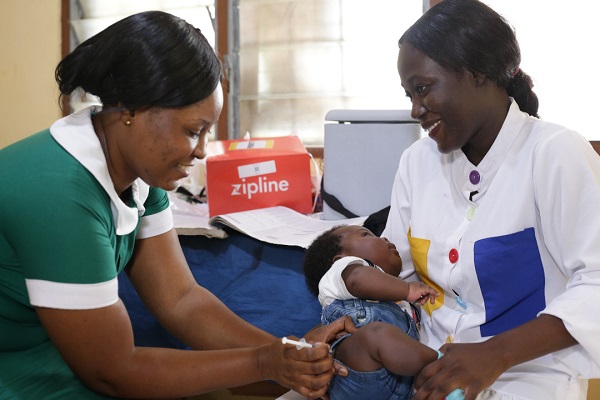
Essential health services patronage declines - DaCosta blames COVID-19
The Health Promotion Division of the Ghana Health Service (GHS) has bemoaned the decline in the patronage of essential health services because of the upsurge of the COVID-19 pandemic.
The GHS mentioned the essential health services to include maternal health, child welfare, sexual and reproductive health, HIV, tuberculosis, meningitis, malaria, non-communicable diseases and family planning.
Advertisement
Speaking at a media engagement on how the GHS could collaborate with the media to increase the uptake of essential health services, the Director of the Health Promotion Division of the service, Dr. DaCosta Aboagye, said such services were critical to preventing avoidable deaths, safeguarding public health and maintaining a healthy population.
He said unfortunately, in the heat of the pandemic, people were anxious about visiting hospitals for their healthcare needs because they feared getting infected with COVID-19 or would be automatically considered a suspected case of COVID-19.
Dr DaCosta Aboagye said people also misunderstood the stay-at-home COVID-19 preventive measure to mean that people should not go to hospital even if they were not well and that he said resulted in the decline of key essential health services.
He said as part of efforts to ensure patronage of such services was preserved, the Health Promotion Division was collaborating with other stakeholders such as the media and civil society organisations.
He, therefore, assured the public that the health facilities were very safe for other health services.
Dr. DaCosta Aboagye said efforts had been made to ensure that everyone had access to their healthcare needs through the facilities of the GHS.
Preservation
He said recognising that preserving essential health services was a shared responsibility, the GHS was engaging with key stakeholders such as the media, religious and traditional leaders and the general public on how the uptake of such services could be preserved for better socio-economic development.
Dr. DaCosta Aboagye attributed the disruption to both the supply and demand for services.
COVID-19 vaccination
Another issue the GHS expressed worry about was vaccine hesitancy and safety protocols fatigue.
Dr. DaCosta Aboagye said the service was experiencing some public hesitancy in the uptake of the COVID-19 vaccination exercise, which he referred to as the major challenge facing the national herd immunity target of 20 million people for the start.
“Now we are at a very crucial stage of the pandemic which is the vaccination exercise. For us to vaccinate the 20 million population target that has been set by the government and by the President, we all have a stake. The media, everyone or every Ghanaian will have a stake in the exercise.
“What I’m saying is that we need the Ghanaian population or the Ghanaian public and the media to help us address and partake in the vaccination so that we can reach the herd immunity that we set for ourselves because we are not safe until everyone has been vaccinated,” he said.
Dr. DaCosta Aboagye said the government, the Ministry of Health and the GHS were making a lot of effort in acquiring the vaccines and it was now up to the population to take the vaccines to ensure public health was better safeguarded.
He said the GHS had rolled out the COVID-19 exercise through its decentralised system to ensure easy access to the vaccines.
He said the media had a key role to play by raising public awareness through more education on the safety and necessity of vaccines as well as accessing essential health services.
Writer’s email: [email protected]




